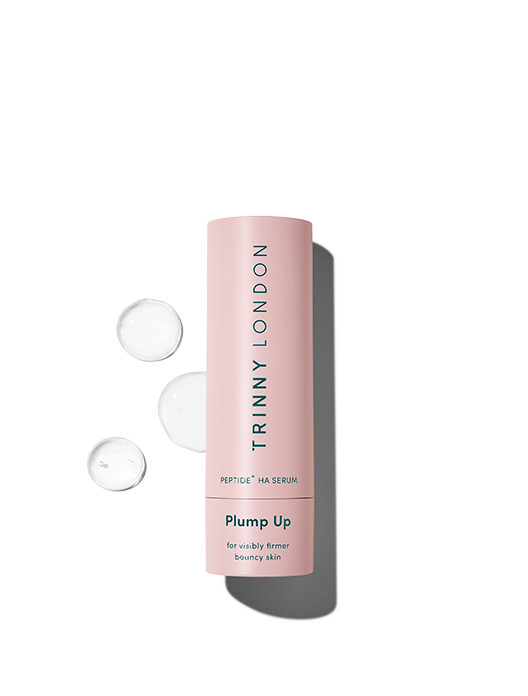
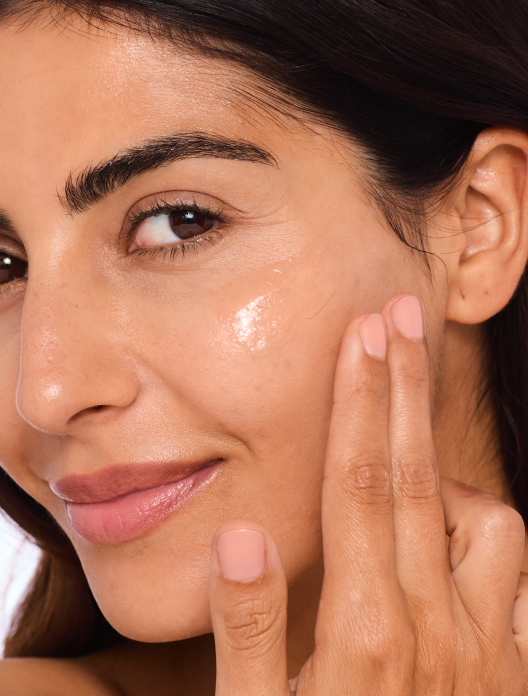
Plump Up
Peptide and hyaluronic acid serum for visibly firmer, bouncy skin, suitable for all skin types
Free standard delivery on orders over $100

A face serum can be defined by both its texture and the role it plays in your skincare routine. Texture-wise, serums are lighter than moisturisers, and therefore should go on first in the skincare order of products. If you apply your serum after your moisturiser, it’ll have a tougher time penetrating the skin in order to work its magic. As for the role face serum plays in your routine, it’s a starring one. Face serums contain the highest concentration of active ingredients compared to any other skincare product, making them the ideal ally to help you reach your skin goals.
“Face serums are very sophisticated in that they have a higher concentration of active ingredients and a very specific role to play,” says Skin Expert and Pro Facialist Fiona Brackenbury. ��“A serum is treating your skin of the future, so how you want your skin to be.” Your face serum might include ingredients like peptides, retinal, vitamin C or niacinamide, all of which have different benefits for your complexion.
The benefits of a face serum will depend entirely on the ingredients within the formula. For example, vitamin C is brilliant for bringing glow back to tired, dull complexions and targeting pigmentation. It’s an antioxidant, so it does its best work during the day, protecting your skin from free radicals which come from things like UV rays, pollution and cigarette smoke. If dehydrated skin is top of your agenda, plump for hyaluronic acid. It’s a humectant, which means it attracts and draws in moisture to the skin. A single molecule can hold up to 1000 times its own weight in water, making it something of a skincare over-achiever.
Fine lines, wrinkles and a general loss of “oomph” can be tackled with the help of peptides or retinal. The former is great for sensitive skin that can’t tolerate retinal, and works as a cheerleader for your skin’s collagen and elastin production. Retinal helps to encourage cell turnover, for fresher, smoother skin. For skin that’s struggling to keep breakouts at bay, niacinamide is a must-have serum ingredient, helping to reduce excess oil so pores are less likely to become blocked.
Reading the above and thinking “I’ll have one of everything, please”? Hold your skincare horses. It’s best to focus on specific concerns, rather than throwing the kitchen sink at your complexion. Our Match2Me tool is a smart place to start – it takes your skin type, sensitivity and concerns into account to deliver a personalised, curated skincare routine.
If you only want to invest in one serum, think about what you want your skin to look like. “I personally like to work on skin goals,” says Fiona. “So every quarter, when the seasons change, check in and see how your skin is and if you’re happy with it. Once you’ve analysed it, you can decide whether you achieved the goal from your last quarter or not, and whether you want to move on to a new serum. Try to be very specific about your goals as the longer the list, the harder it’s going to be for one serum to deliver.”
Keep in mind that results are unlikely to be instant, and improvements in your skin take time to show. “A lot of people judge their serums very quickly because they want immediate results but unfortunately skincare won’t deliver like that,” continues Fiona. “If you want to make a difference to, say, your skin texture or uneven tone, you’re going to need to allow around one to two skin cycles (around two months) before deciding if it really works.”
When it comes to face serums and moisturisers, it’s not an either-or scenario. For the healthiest, happiest skin possible, you’ll need both in your routine. As we have already established, face serums earn their keep in your routine by delivering high concentrations of active ingredients in order to help you achieve your skin goals. A moisturiser does something very different. Our skin’s key function is to act as a barrier between our insides and the outside world, and a moisturiser helps to support that by working to keep good things (like moisture) in and bad things (like pollution) out. Your moisturiser should also help to support the more overall condition of your skin, not just by adding and retaining moisture, but by assisting your serum in doing things like plumping and balancing your complexion.
Shop the article


Peptide and hyaluronic acid serum for visibly firmer, bouncy skin, suitable for all skin types

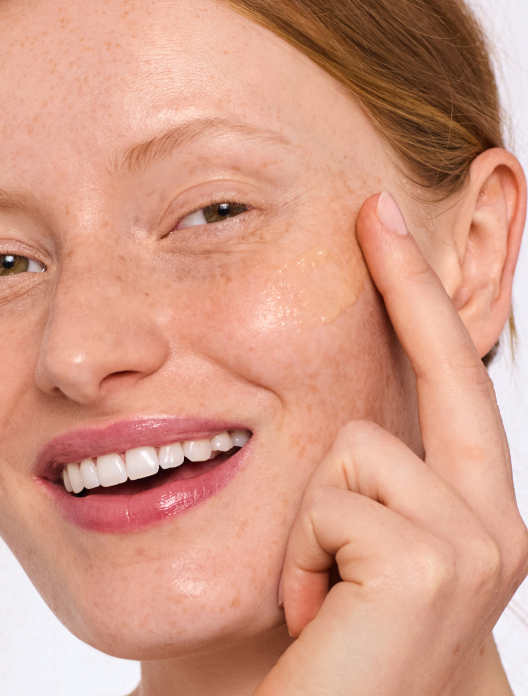
30% vitamin C serum for visibly brighter, glowing skin, suitable for highly experienced skincare users (not for sensitive skin)
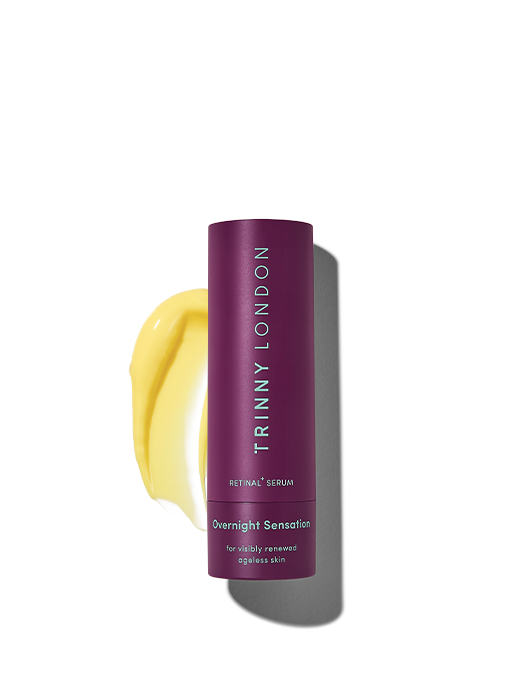
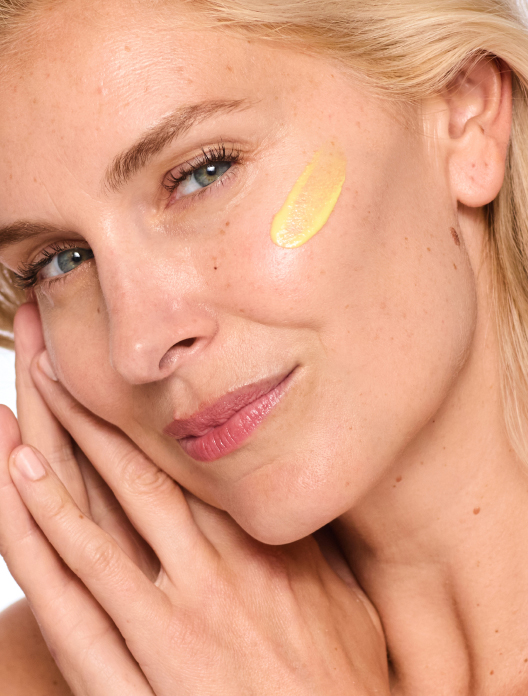
High-dose retinal serum for renewed, smooth skin, suitable for all skin types
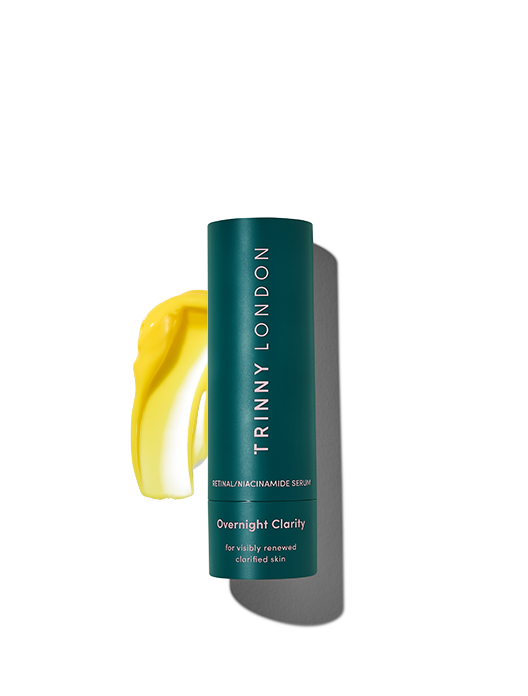
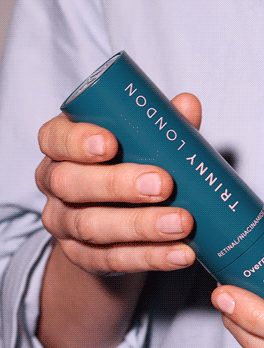
Retinal/niacinamide serum for visibly smooth, even skin, suitable for all skin types